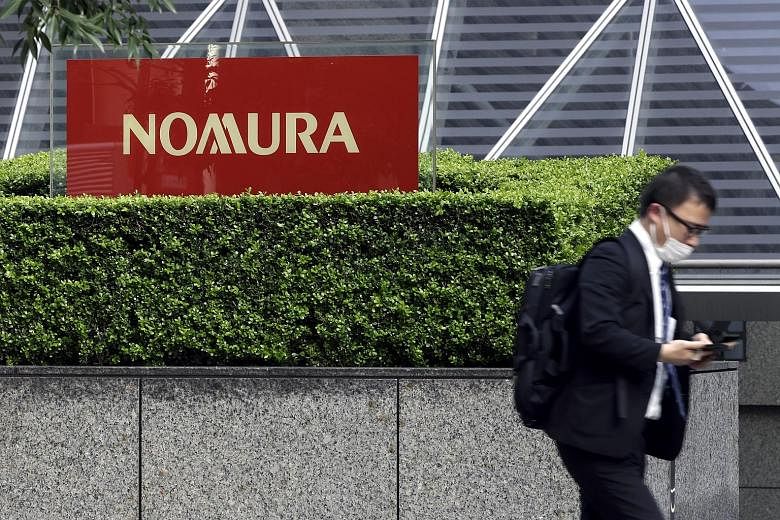Banks are facing billions of dollars in losses after a little-known US investment firm, Archegos Capital Management, defaulted last week on margin calls, forcing a brutal near US$30 billion (S$40.4 billion) stock fire sale.
In an era of easy money, Archegos was able to borrow so much that its failure created shockwaves large enough to ripple across global financial markets.
Here's how it happened:
BILL HWANG AND THE FAMILY OFFICE
New York-based Archegos was set up by Mr Bill Hwang, formerly a stock analyst with hedge fund Tiger Management, founded by legendary fund manager and US billionaire Julian Robertson.
Mr Robertson closed his fund in 2000, but handed Mr Hwang, one of his proteges or "tiger cubs", about US$25 million to launch his own fund, Tiger Asia Management, in 2001. Mr Hwang grew his firm's assets to over US$5 billion at its peak.
But he shut the fund in 2012 after pleading guilty to US insider trading, paying US$60 million to settle charges of manipulating Chinese stocks. He was also banned from trading securities in Hong Kong for four years in 2014.
So Mr Hwang went private. He converted Tiger Asia into a single-family office, Archegos, in 2013 to manage his personal wealth. These firms that manage the money of wealthy families are generally outside regulatory scrutiny in the United States and most of their information is not in the public domain.
SECRET SWAPS
Archegos had assets of around US$10 billion but its real exposure to stocks was much more, with some reports putting it at US$50 billion.
What Mr Hwang did was that he did not buy stocks directly - he bought complex "derivative" instruments or swaps from banks called contracts-for-difference or CFDs.
CFDs allow traders to place a directional bet on the price of a security without actually buying or selling the underlying instrument. If the price went up the seller pays the buyer the difference, and vice versa.
Under US rules, investors who own a stake of more than 5 per cent in a US-listed firm usually have to disclose their holdings and subsequent transactions. But using CFDs, Mr Hwang did not have to declare his holdings.
CFDs are also "leveraged" bets, where investors can use borrowed money at a fraction of the cost of the underlying asset, typically around 10 per cent to 20 per cent. So you can get a position worth US$1 million on a stock and need only US$200,000 in margin.
Using the swaps, Mr Hwang built huge and highly leveraged positions in listed companies like ViacomCBS, Discovery Communications along with Chinese giants Baidu and Tencent.
WHEN MARGIN CALLS
Archegos' meltdown was triggered last week after some of its portfolio stocks had a significant price fall. This in turn triggered margin calls from the banks. Archegos' failure to meet those calls forced big banks, including Nomura, Credit Suisse, UBS, Deutsche Bank, Goldman Sachs and Morgan Stanley, to liquidate their stock holdings at deep losses.
Banks' losses have been estimated at US$6 billion to US$10 billion. Shares of Archegos' portfolio stocks, meanwhile, were battered by the banks' giant block trades in the selling spree.
WHAT NOW?
The collapse of Archegos is another strike against the lightly regulated non-bank or "shadow banking" sector and has renewed calls for tighter regulation.
Despite managing US$10 billion and reportedly being leveraged to the tune of around US$50 billion, Archegos was not directly regulated as it was a single-family office. It also quietly amassed outsized positions through the use of derivatives.
While global regulators are monitoring the fallout, US Treasury Secretary Janet Yellen will be meeting the Financial Stability Oversight Council under the Biden administration. It is set to discuss hedge fund activity, among other issues, and analysts expect it will address the Archegos issue too.

